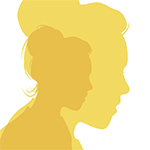Reflexivity and positionality in research
Presenter(s): Dr. Nicole Brown

Reflexivity is a process where researchers are considering their own assumptions about the research topic, and unpick how their personal beliefs and assumptions shape the research work they undertake. Reflexivity is "… attending systematically to the context of knowledge construction, especially to the effect of the researcher, at every step of the research process" (Malterud, 2001, p. 484).
This resource will guide you in following a reflexive process in your research, and will explain the role of positionality.
What is reflexivity?
- Reflexivity means "to turn back on yourself".
- Reflexivity is when you consider and challenge your biases and assumptions.
- Reflexivity is a second-order questioning in the form of "why do I think what I think?".
- Reflexivity means to not take things for granted.
- Through questioning, reflecting on, and challenging biases and assumptions, reflexivity is emancipatory and transformational.
Reflexivity is not binary – that we either are, or are not reflexive. Instead, it is about checking on ourselves, as researchers, and considering our biases and assumptions. The process is situated on a continuum that reaches from minimal levels of reflexivity, with little consideration of one's own assumptions, which induces "a heightened state of self-consciousness in the service of self-transformation" (May and Perry, 2017, p. 3); to the maximum levels of reflexivity that lead researchers to "accept our insignificance" (May and Perry, 2017, p. 4) in the world, acknowledging that ours is just one of many possible perspectives that influence interpretation of research.
In most cases of academic research, researchers are asked to comment on how they have mitigated any potential issues that those personal thoughts may have brought. Yet, personal beliefs, professional knowledge and practical expertise can also be regarded as positives, as this insider experience will offer a substantive starting point to research that other researchers without that insider knowledge may not have.
How do I do reflexivity?
To do reflexivity well a researcher needs to be critically reflective and must not shy away from dealing with uncomfortable and difficult conversations with themselves. However, these really are the only "rules". Reflexivity work happens in a private space and so, how this critical reflection is undertaken is a personal choice and does not ever need to be shared.

Research journal:
Maintain research journals to record observations and reflections pertaining to the research process. If maintained well, research journals are a comprehensive record of personal learning and decision-making during the process of research.
Pre-set questions:
Sometimes, researchers may struggle to know what to write about in their research journals. This is where pre-set questions are often a helpful starting point for developing reflexive thinking. For example: What is my theoretical framework? What is my philosophical outlook on research and knowledge and truth? Which political systems do I subscribe to? List of reflexivity questions - worksheet.
Creative journaling activity:
Research journals do not need to be of the beautifully illustrated, handwritten kind that we so often see on social media. Instead, journaling can take many forms, and may include simple mark-making, the assembly and curation of objects, photography, or sound recordings. Try this: Develop a word cloud of words and phrases you associate with your personal beliefs and assumptions.
Remember that the reflexivity work you undertake is private. Indeed, Professor Sarah Delamont warns against oversharing details that may come back to haunt researchers, especially if they are in early careers positions under precarious contracts (Delamont, 2018). As this work is private, there cannot be any rules around how reflexivity is to be done. You need to find what works for you, which will probably not be one particular way of working. Instead, as you begin to experiment with different ways of working you will find that each form and format has its own advantages and drawbacks, and brought together they will offer you consistency, coherence, and systematicity.
Do I have to do reflexivity and write a positionality statement?
Reflexive practice in research is good practice. Just as we are conducting our research ethically sound, we should be undertaking our research reflexively. As for the positionality statement, opinions vary on their usefulness (Savolainen et al., 2023; Folkes, 2022; Smith et al., 2021). Some journals insist on authors offering information relating to their beliefs and assumptions, thus their positionality, whereas other journals do not seem to be insistent at all. There are disciplinary conventions at play here, that will also have a bearing on whether positionality statements are needed. For example: the slogan "Nothing about us without us" pervades disability studies, a positionality statement in relation to authors' own experience of and with disability may therefore be inevitable. Within the context of positivist research frameworks, however, positionality statements are less commonly required. Given that researchers do still bring their personal beliefs and interests, experiences and expertise to the research and set the research agenda, we may want to challenge the general assumption that positionality does not matter in those circumstances. However, at the same time, we should also not force scholars to overshare in an attempt to avoid tokenistic reflexivity work.
Try this: Re-read the academic publications you have most recently consulted, but this time focus on the positionality statement and consider the impact of (not) knowing about the researcher's positionality.
___
References:
Delamont, S. (2018). Truth is Not Linked to Political Virtue: Problems with Positionality. [Keynote Presentation at The Fourth Annual Qualitative Research Symposium "How Do We Belong? Researcher Positionality within Qualitative Inquiry"]. 31 January 2018. University of Bath.
Folkes, L. (2022). Moving beyond ‘shopping list’ positionality: Using kitchen table reflexivity and in/visible tools to develop reflexive qualitative research. Qualitative Research, Online first: 14687941221098922.
Malterud, K. (2001). Qualitative research: standards, challenges, and guidelines. The Lancet, 358(9280), 483-488.
May, T., & Perry, B. (2017). Reflexivity: The Essential Guide. Sage.
Savolainen, J., Casey, P. J., McBrayer, J. P., & Schwerdtle, P. N. (2023). Positionality and Its Problems: Questioning the Value of Reflexivity Statements in Research. Perspectives on Psychological Science, Online first: 17456916221144988.
Smith, J., Blevins, B., Werse, N. R., & Talbert, S. (2021). Researcher positionality in the dissertation in practice. In: Thorne, R. (ed.). Practice-Based and Practice-Led Research for Dissertation Development. IGI Global. pp. 43-63.
About the author
Dr. Nicole Brown is a social researcher and author, whose expertise lies with social research practice on the cusp of practice/teaching/research. She has been a research methods teacher in Higher Education for over 15 years.
- Published on: 30 May 2023
- Event hosted by:
- Keywords: Reflexivity | Research | Positionality |
- To cite this resource:
Dr. Nicole Brown. (2023). Reflexivity and positionality in research. National Centre for Research Methods online learning resource. Available at https://www.ncrm.ac.uk/resources/online/all/?id=20808 [accessed: 17 December 2025]
⌃BACK TO TOP


